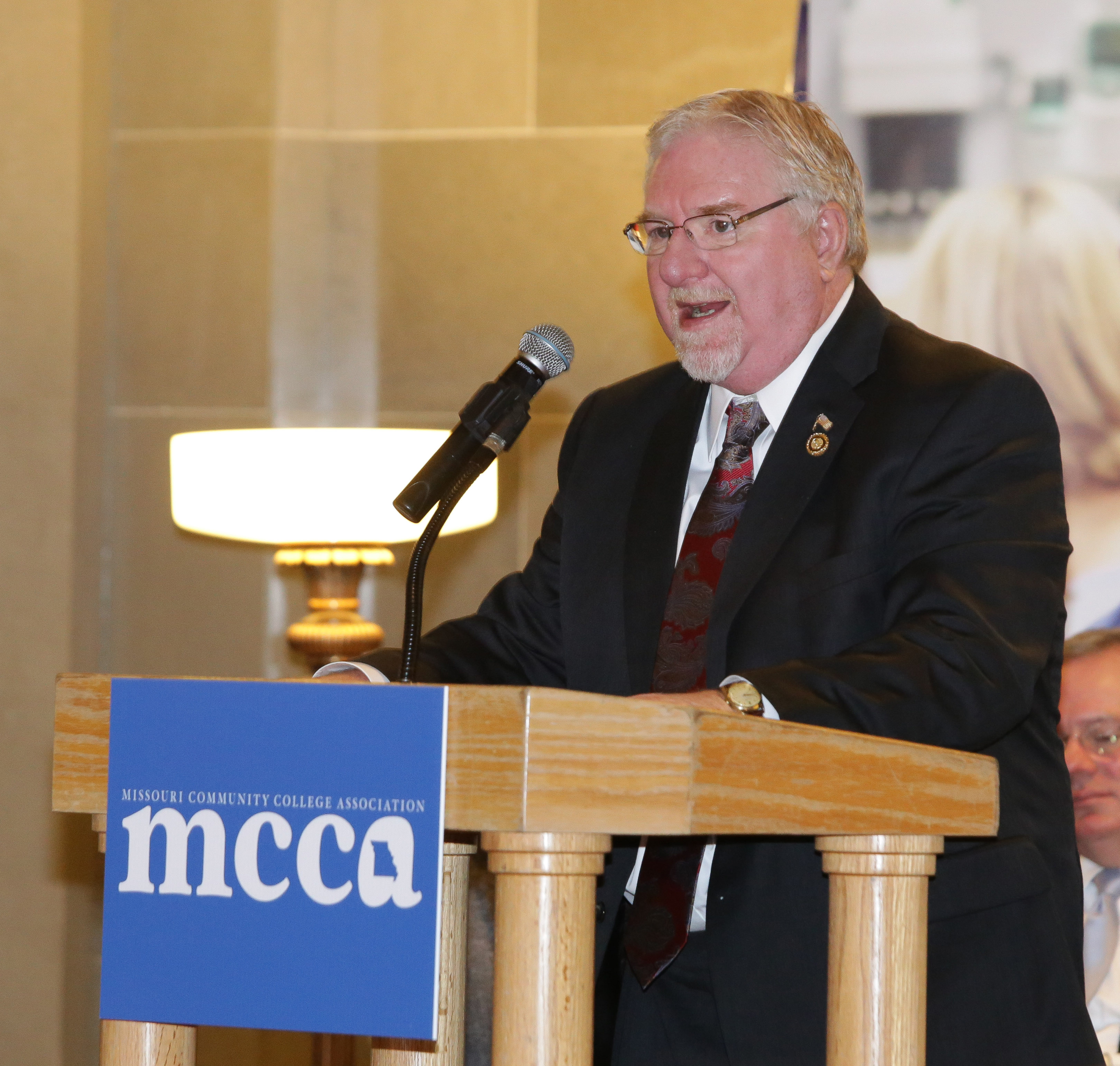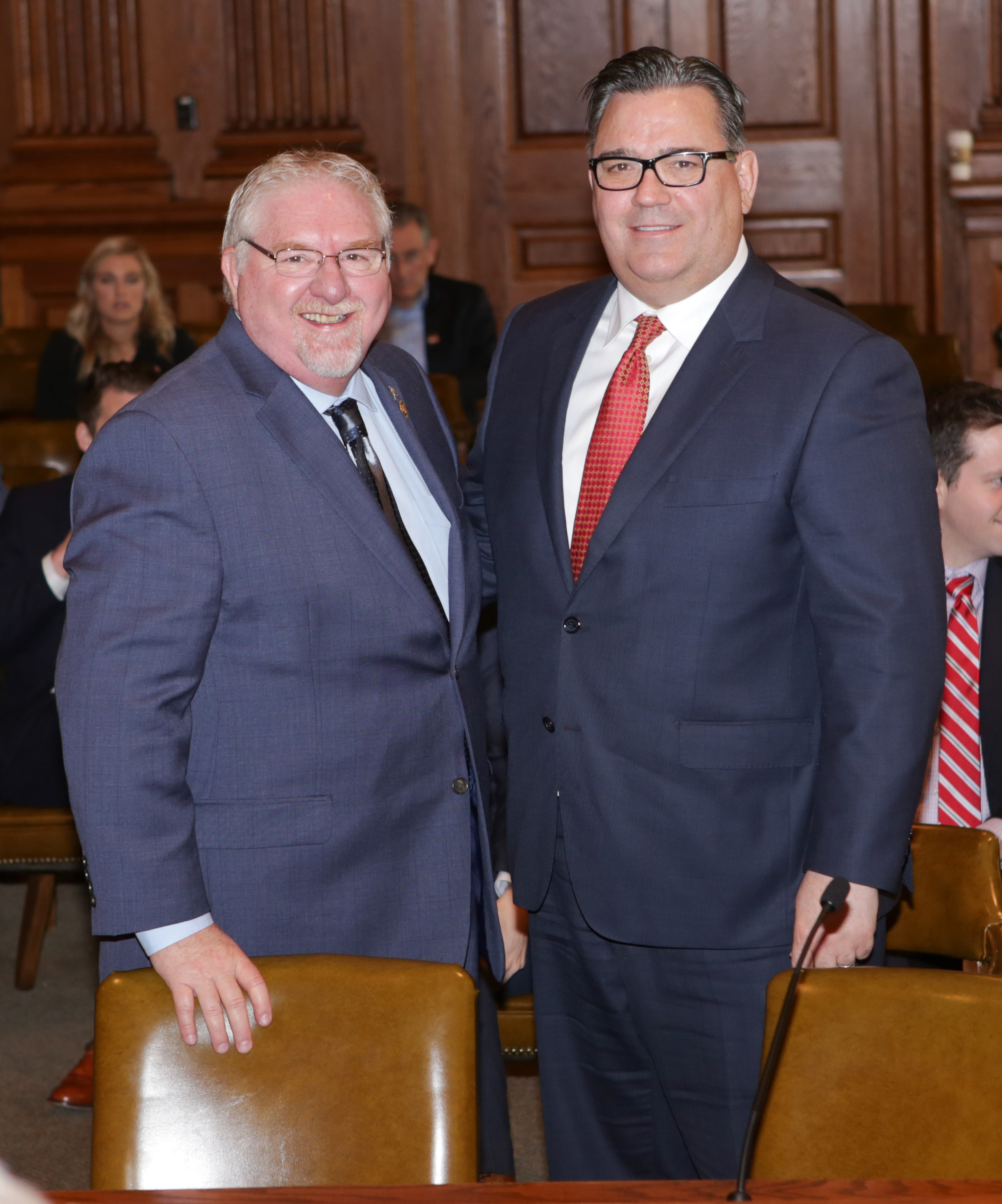
Senate Passes Wide Range of Legislation, Community Colleges Launch Job Training Partnership
It was another productive week in Jefferson City, with the Senate passing legislation on topics ranging from Missouri’s workers’ compensation law to prescription drug abuse. Before I get to the details of these measures, I want to first highlight an exciting new initiative being launched by Missouri’s community colleges.

On Thursday, presidents and chancellors from each of Missouri’s 12 community colleges were at the Capitol to take part in a signing ceremony that officially established the Missouri Community College Workforce Development Network. At the center of the Network’s mission — addressing the No. 1 challenge Missouri businesses face: the availability of a skilled workforce.
Unlike other states, Missouri’s community colleges operate independently of each other. Although this allows them greater flexibility, it also makes larger collaboration efforts within the community college system more difficult. By joining forces, our community colleges will be better positioned to share resources and work together. A single point of access also means businesses will be able to easily locate a community college that offers a program — or can offer a program — tailored to meet their specific workforce needs. I also want to note this partnership will not cost the state any additional money. It really is a win for everyone.
I have been working to improve Missouri’s job training and workforce development capabilities for several years now, so it is especially rewarding to see us take this big step forward. I want to thank the Missouri Community College Association for inviting me to speak at Thursday’s ceremony. I truly believe the Missouri Community College Workforce Development Network will make a huge difference in the Show-Me State’s ability to attract new economic development opportunities within just a few years.
Also this week, the Senate approved legislation that will better protect Missourians from illegal immigrants who come to our state, violate our laws and cause our citizens harm. Senate Bill 34 creates the crime of illegal re-entry, which a person commits if he or she has previously been removed from the United States due to the violation of certain federal crimes and then re-enters Missouri, or another state, and commits the offense of assault, domestic assault, or a dangerous felony. Illegal reentry would be punishable as a Class C felony. Senate Bill 34 easily passed, with support from members on both sides of the aisle.
We also passed a measure that will help reform Missouri’s workers’ compensation system to be more fair and structured for both the employer and the employee. Ever since the Missouri Supreme Court’s 2015 decision in Greer v. Sysco Foods, workers’ compensation claims for temporary disability benefits have been able to continue for what seems to be an indefinite period of time, without the employee ever transitioning to permanent disability. This is not only costly for the employer, but it also creates a prolonged period of uncertainty for both parties.

Among other provisions, Senate Bill 66 stipulates that an injured employee can only receive temporary disability benefits until they reach “maximum medical improvement,” defined as the point at which an employee’s medical condition has stabilized and can no longer reasonably improve as determined by the employer’s physician. This measure will provide both the employer and employee with greater certainty and create a more business-friendly environment for the state.
State senators also advanced Senate Bill 139 to establish the Rx Cares for Missouri program. This program is part of the Legislature’s ongoing efforts to fight prescription drug abuse in our state. Administered by the state Board of Pharmacy with consultation from the Missouri Department of Health and Senior Services, Rx Cares for Missouri will provide grants to promote the safe use of medications and prevent prescription drug abuse. Only already existing funds collected from pharmacist fees would be used.
Finally, I was honored to sponsor Mr. Jeffrey L. Layman’s appointment to the University of Missouri Board of Curators. I believe he will bring a common sense business approach to the Board, which is sorely needed.
The University of Missouri Board of Curators has the constitutional authority to oversee the operation of the four-campus University of Missouri System. Among other things, the board sets fees, determines admissions requirements, grants degrees, issues bonds and hires the University president.
If you have any questions or comments regarding your state government, please feel free to contact me at (573) 751-1503. You are also welcome to e-mail me at jay.wasson@senate.mo.gov.
